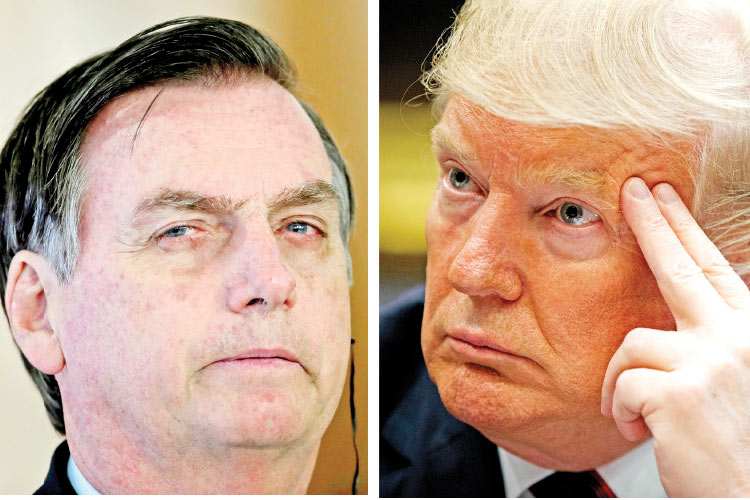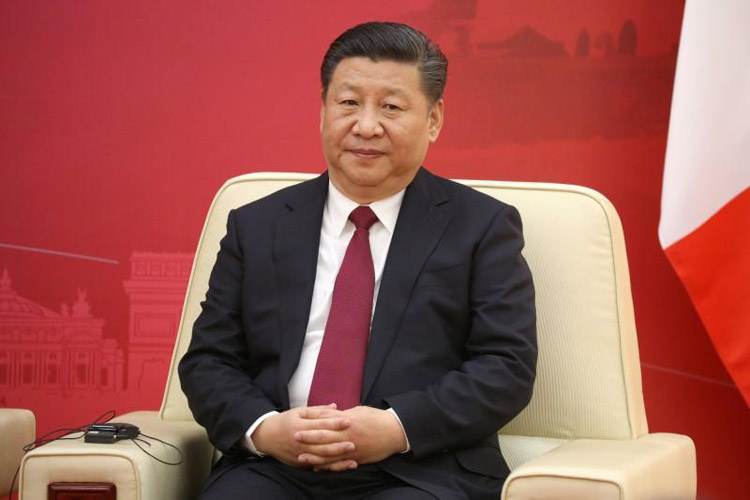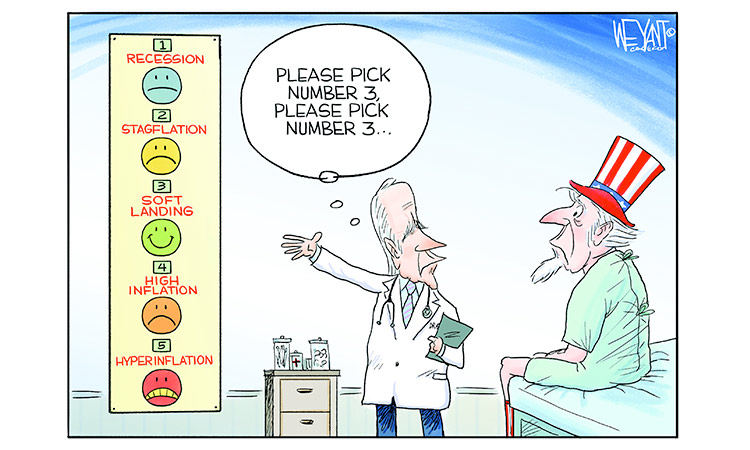How did we get to the chaotic era of Bolsonaro and Trump?


Jair Bolsonaro and Donald Trump.
If only. Trump is, in fact, loved, worshipped and emulated by mini-Trumps all over the world (as well as his base domestically). None is more devout than Jair Messias Bolsonaro, 38th president of the Federative Republic of Brazil. A former army man, he is set on making Brazil America’s ally of choice in the region, a bulwark against the chaos in Venezuela in particular, a valuable friend and supporter. One with some heft too – Brazil now ranks as the eighth largest economy in the world (just ahead of the UK, allowing for exchange rate distortions, and just behind Indonesia).
The “Trump of the Tropics” is a nickname that no doubt Bolsonaro enjoys. Their bromance seems set to blossom.
Not every brute on the planet loves Donald Trump, but an awful lot of them do, and we are witnessing an arc of authoritarianism stretching all the way from Trump and Bolsonaro, through European far-right and fascistic leaders such as Matteo Salvini and Viktor Orban, through the likes of Erdogan, Putin and Modiright across to President Xi Jinping in China and Rodrigo Duterte in the Philippines.
Some of these countries were vibrant liberal democracies; others were not so lucky: all are now falling under the shadow of an insidious denial of civil liberties and oppression of minorities and refugees in the name of patriotism and “nation first” populism.
Bolsonaro is one of the most interesting – and instructive of the new authoritarians. His style of leadership has been out of fashion in Brazil for some time – since the end of the military junta that ruled the country from 1964 to 1985. Bolsonaro has publicly praised this dictatorship as a glorious era, a paragon of stability and progress (it wasn’t), whose only flaw was that it was too soft on its critics – torturing them but failing to murder them.
But, like Trump, Bolsonaro got into power through a popular vote, not a military coup d’etat. He got elected, with support from the less well-educated and more conservative elements in society, what are called in the west the “left-behind”, far away from the cosmopolitan metropolises of Rio and Sao Paolo. Bolsonaro was greatly helped by the failure – disgrace – of his immediate predecessors. The charismatic and wildly popular leftist Lula, president from 2003 to 2010, now languishes in jail, serving a 13-year term for corruption.
Bolsonaro has also been aided by the manifest chaos in neighbouring Venezuela, where Hugo Chavez and Nicolas Maduro have contrived to run an oil-rich state into a basket case – a stern warning to any other electorates who might want to experiment with advanced socialism, which even Cuba is slowly emerging from. The popularity of Bolsonaro, in other words, as with those of the earlier examples such as Salvini in Italy or Le Pen in France, is built partly on the abject current weakness of progressive forces in politics, the media and wider society to put up much of a fight – by which I mean reasoned, convincing argument that can reclaim and carry the political middle ground and show up the likes of Trump or Bolsonaro for the idiotic monsters they are.
The centrists (broadly) that ran the world in the last decade of the 20th century and the early years of the 21st were responsible for a long period of peace and prosperity, notwithstanding the wars against tyrants that had to be fought and the financial crisis and subsequent recession. The likes of Clinton, Blair, Mandela, Yeltsin, Obama, even Lula, George W Bush and Angela Merkel (the great survivor) had their problems – some grievous. Their mistakes, including a carelessness about the effects of globalisation, did help to incubate Trumpism – but look back now, and it feels like a prelapsarian age of freedom. Where – why – did it all go wrong?



